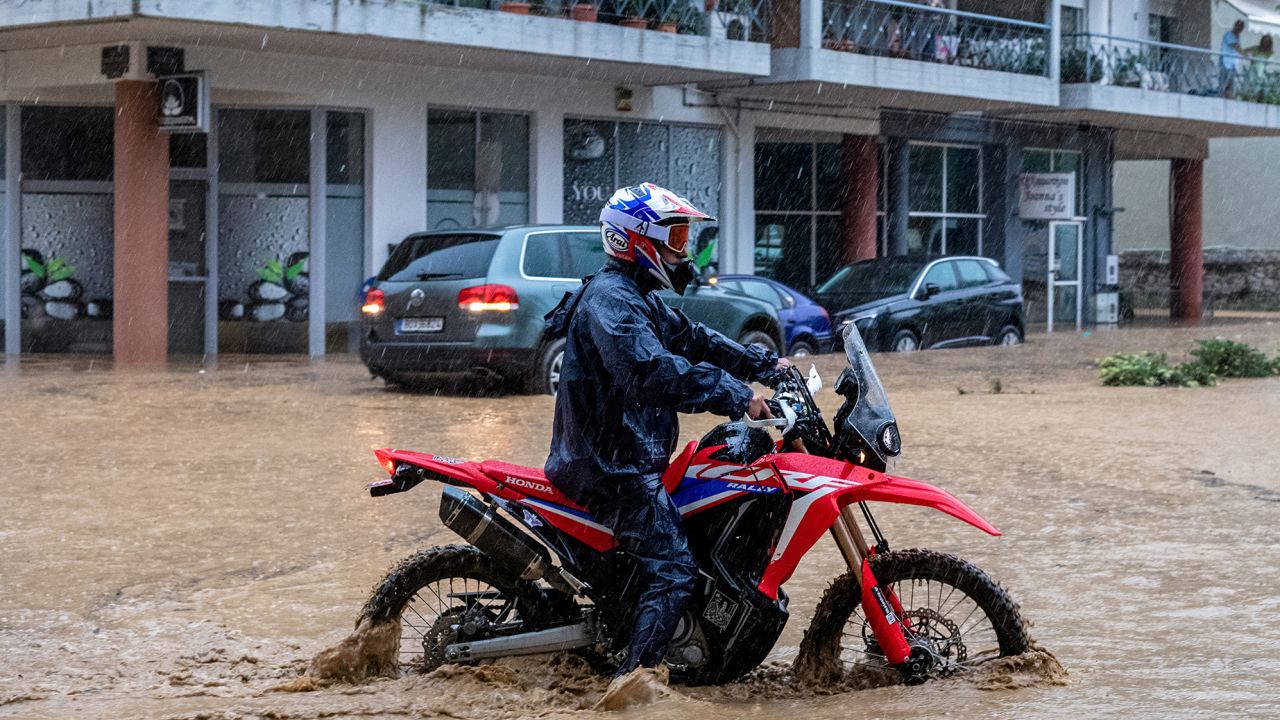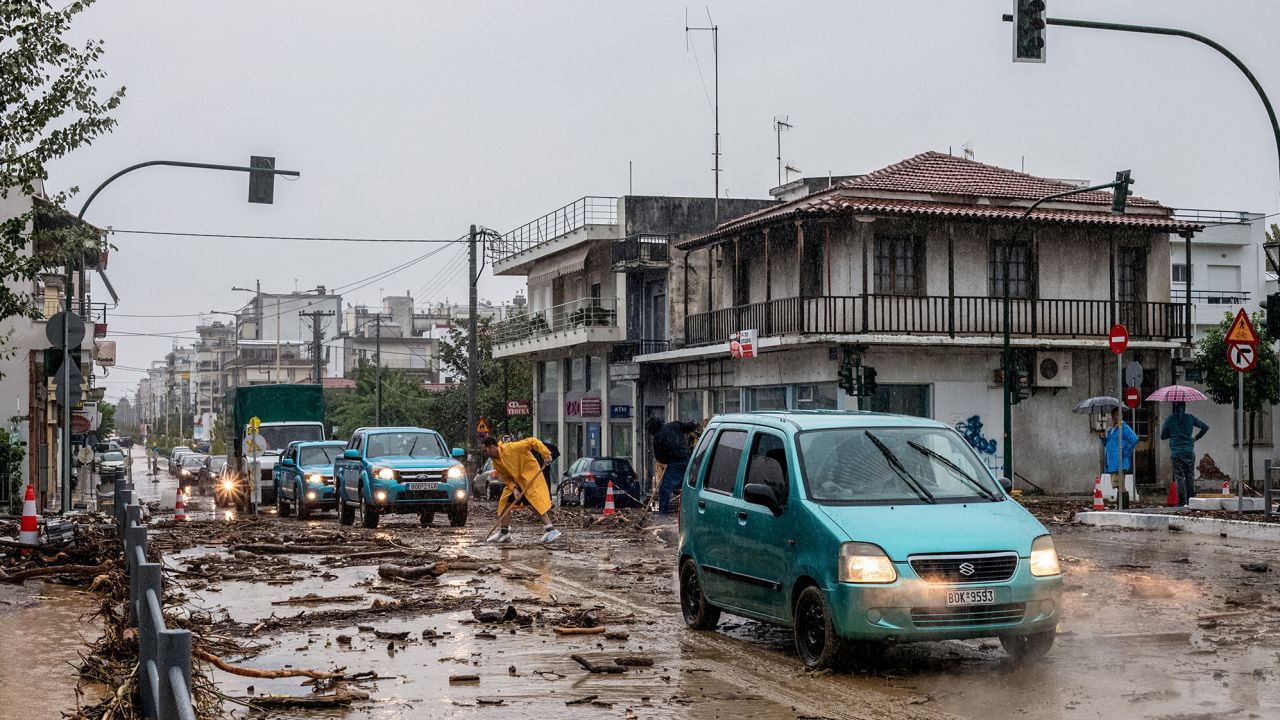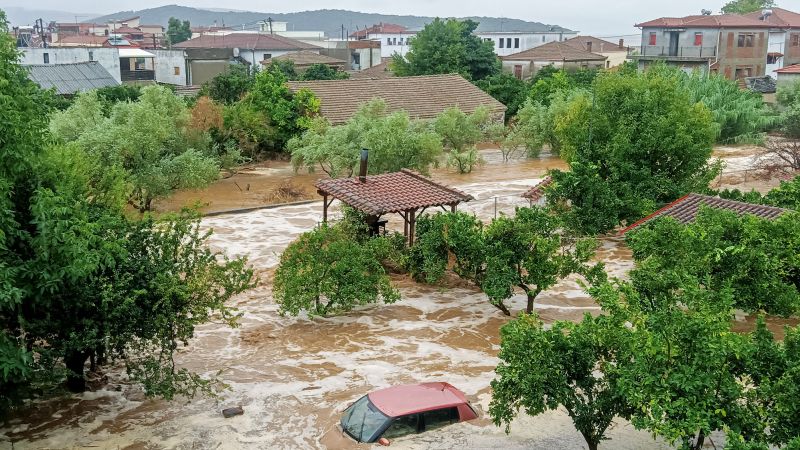CNN
—
Greece is being lashed with torrential rains which have flooded homes, businesses and roads and left at least one person dead after a wall collapsed in the extreme weather.
Hundreds of millimeters of rainfall have been dumped over some areas in the last 24 hours as a strong area of low pressure passes over the country, leading to dangerous flash floods.
Greece’s prime minister, Kyriakos Mitsotakis, has said that it is facing a “totally extreme weather phenomenon” and has urged the public to follow instructions from authorities.
The rainfall is particularly severe in central Greece and on the island of Evia and the Sporades Islands.
One man died on Tuesday after he was crushed by a wall in the village of Agios Georgios, near the city of Volos, according to the Greek fire service.
Another man was missing after he was swept away with his car on the outskirts of Volos, the fire service told CNN.
Traffic circulation has been banned by the police in Volos and surrounding areas, as well as on the island of Skiathos. Part of the local hospital in Volos has also been flooded.


The storm, which has officially been named Daniel by the national meteorological services in southeast Europe, has been moving slowly across the country toward the southwest.
Its center is emerging into the Mediterranean Sea but it will continue to bring heavy rainfall and flooding to Greece and islands in the eastern Mediterranean over the next 24 to 48 hours.
Red warnings are posted for heavy rain and thunderstorms through Wednesday for multiple provinces, especially eastern facing coastlines which will see continuous bouts of thunderstorms.
As the storm enters the Mediterranean Sea, it may take on characteristics similar to a tropical storm.
Known as “medicanes,” these systems can bring dangerous conditions to the Mediterranean Sea and coastal countries similar to tropical storms and hurricanes in the Atlantic or typhoons in the Pacific.
Warm sea surface temperatures of 27 to 30 degrees Celsius could allow the storm to strengthen across the eastern Mediterranean over the next day or two.
The storm comes just as Greece has managed to bring under control hundreds of raging wildfires which have devastated parts of the country over the past weeks.
Scientists are clear that the kind of extreme weather Greece has faced this summer, from floods and fires to extreme heat, will only become more common and more severe as humans continue to burn planet-heating fossil fuels.

